
Within the second quarter of 2021, the number of monthly active online users on the WeChat platform has reached 1.24 billion (Statista, 2021). WeChat platform is pervasive in terms of the user base, functionalities, and scale, and is becoming a part of people’s everyday lives in China as the boundaries between public infrastructure and platforms are becoming more porous (de Kloet, 2019). This essay will discuss the birth and history of WeChat and delve into their main services and business models, as well as analysing concerns been raised about the platform.
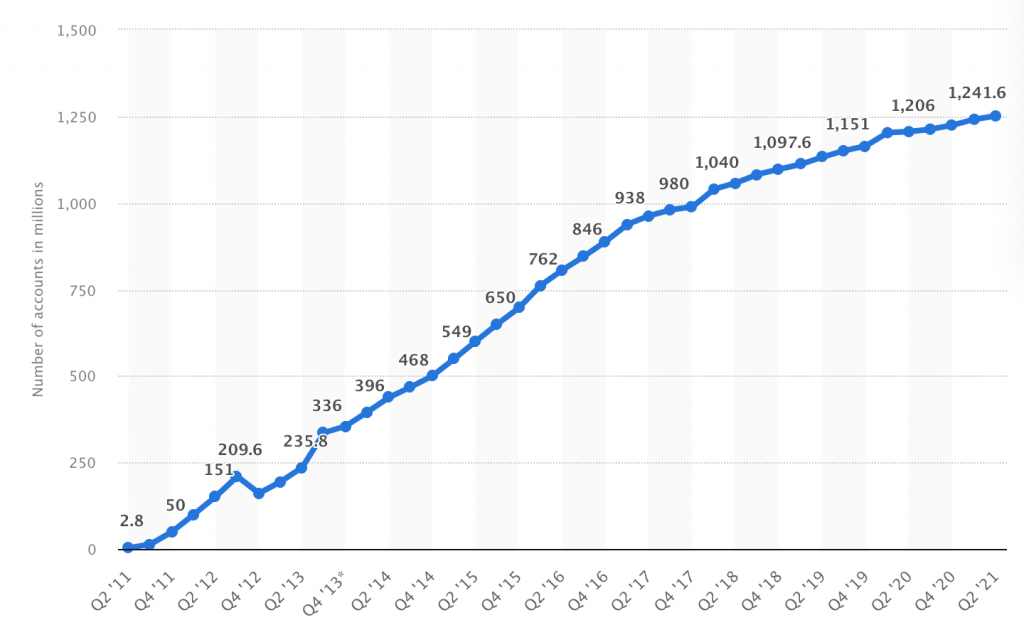
Figure 2. The number of WeChat users. Statista, All Rights Reserved.
1. The birth and history of WeChat
First released in 2011, WeChat is a social platform developed by the Chinese technology company Tencent, which welcomes various vertical businesses (Chen, Mao & Qiu, 2018). It did not aim to become big at the beginning, but it grew into a mega-platform due to a series of conditions. Whilst it is undeniable that their service and functionality designs have played a vital role in the development of the platform, China’s extremely rapid process of infrastructuralisation of platforms, pre-existing cultural practices, platformisation of infrastructures, and current media environment (de Kloet, 2019) also contribute to its success.
2. Primary goods and services
Instead of simply acting as a messaging tool, WeChat also provides opportunities for users to share their pictures or thoughts on Moments, play games, and do online shopping through mini-programs, as well as making quick and convenient digital payments. Among all these services, I would like to first focus on analysing the messaging and digital payment service, and more analyses about Moments and mini-program function will be discussed in the business model part.
- Messaging
Online users can send text messages, as well as making voice and video calling within the platform. Besides, the widespread use of memes, stickers, and GIFs on WeChat also plays a vital role in facilitating communication, which significantly expands the possibility for users to express their emotions without the need for the text (de Kloet, 2019).
- Digital payment services
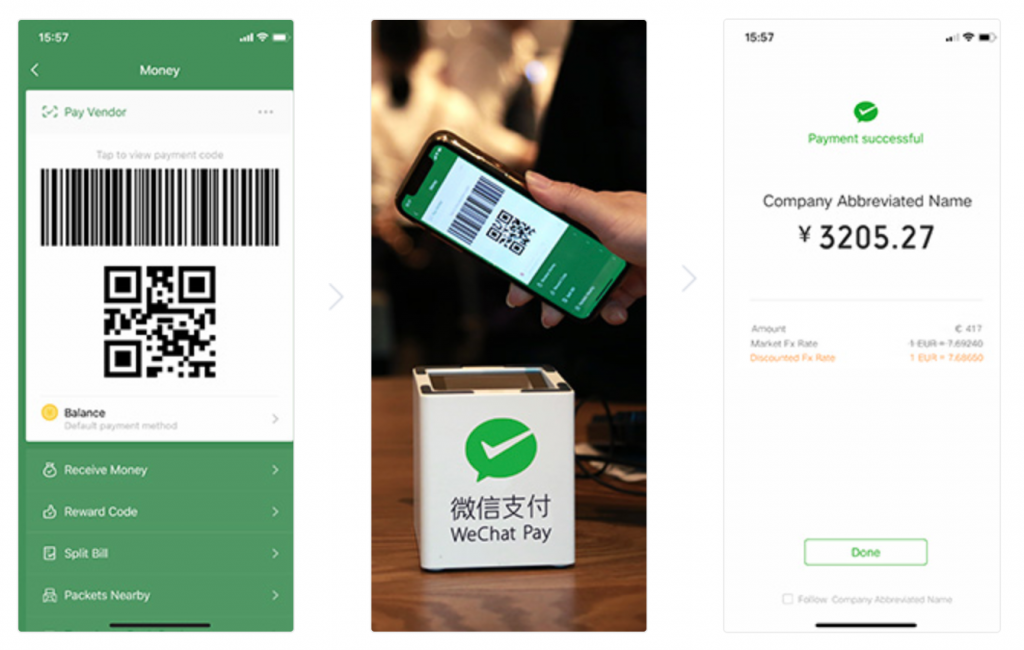
Figure 3. Quick pay. WeChat, All Rights Reserved.
WeChat Pay provides a digital wallet and mobile payment service which allows users to perform mobile payments and make transactions between contacts (WeChat Pay, 2021). It has already become the infrastructure in China’s digital economy, which makes physical currency become almost obsolete and supplements the previously dysfunctional banking system (de Kloet, 2019). The variety of payment products (quick pay, QR code payment, mini-program payment) all aim at helping users make a convenient and quick payment on the WeChat platform.
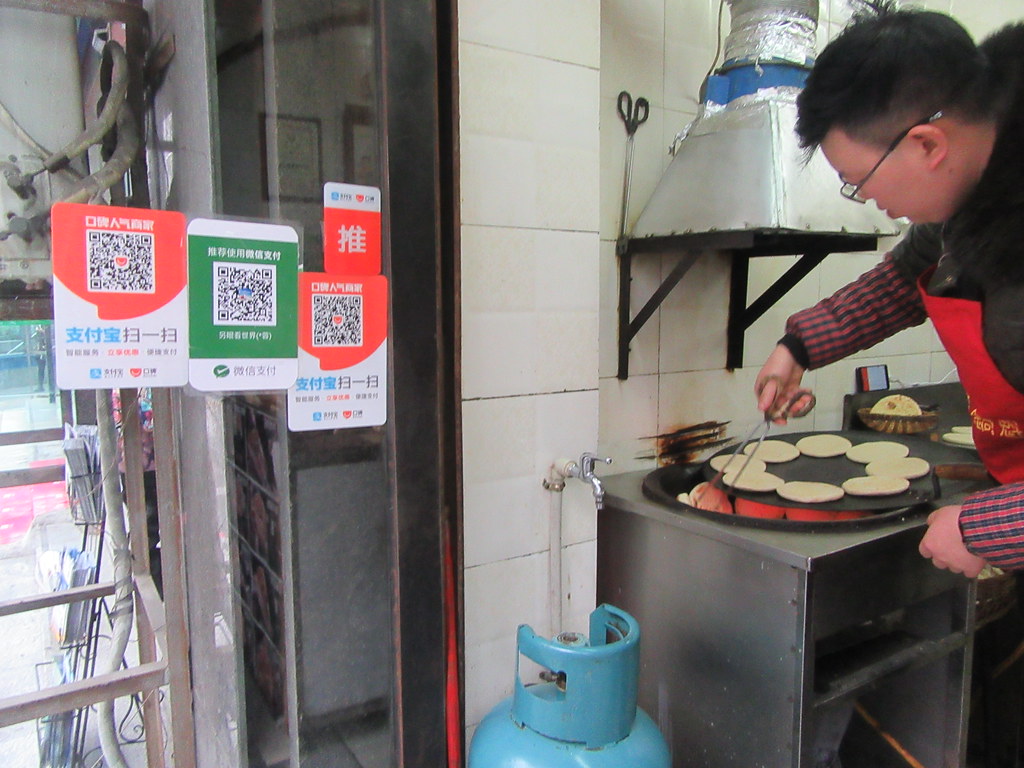
Figure 4. QR code payment systems in China. amanderson2. CC BY-NC 2.0
WeChat platform has also provided the driving force for the widespread adoption of shared service in the Chinese sharing economy. The offline sharing services in China rely on QR codes payment services on WeChat to connect their products (shared bikes, shared charge pals, shared umbrella) and users. Moreover, one of the significant values for the sharing economy is the trust induced by the internet (John, 2018). WeChat’s real name registration plays a vital role in establishing trust and minimising the user damage to sharing economy service products. Users are required to provide their ID card or passport to the platform when they want to utilise the payment system (Chen, Mao & Qiu, 2018). Although the real-name registration system cannot completely avoid the abuse of shared services, it has minimised the possible damage and made it possible for sharing service providers to identify, track, and punish users for their bad behaviours.
3.WeChat’s business model
In the context of the platform, business models refer to how the company plans to create and capture economic values (Van Dijck, 2018). Platforms tend to utilise a series of different business models to create value out of data by selling advertisements and charging public accounts and users for value-added fees.
- Advertising
Platforms utilise algorithms to connect users to advertisements (Van Dijck, 2018), and WeChat earns advertising revenue by helping businesses promote their brands in Moments, which is one of the major sources of income for the platform. Algorithms are implemented based on users’ age, gender, location, interest, and device, which increase brands’ invisibility in front of their potential customers.

Figure 5. Advertisement on WeChat Moments. XiRu Peng. CC BY-NC 2.0
- Liberating brands in new ways
The new ways that WeChat has liberated brands subvert the traditional way of communication between merchants and customers (Nawaz et al., 2020). Official account services on WeChat tend to help businesses provide a more interactive and personalised experience for their potential customers. In this way, WeChat penetrates the enterprise at a significantly faster speed than previous platforms by providing opportunities for organisations, brands, celebrities to better interact with their users (Chan, 2021). For instance, while Facebook or Twitter allows KFC to post the product offer for online users on the platform, a more interactive and personalised experience is created on WeChat by allowing KFC to offer birthday gift coupons in users’ birthday month, and help users find the nearest restaurant or order directly through the mini-program on the platform. Furthermore, WeChat also allows KFC to offer bonus points to users with their every purchase through official accounts, and when enough points are collected, users can receive a bonus gift or get a discount on the next purchase. In this way, the utilisation of official accounts and mini-programs both help the enterprise have a greater chance to trade with online users. Ultimately, WeChat also gets economic value by charging these enterprises for value-added service fees.
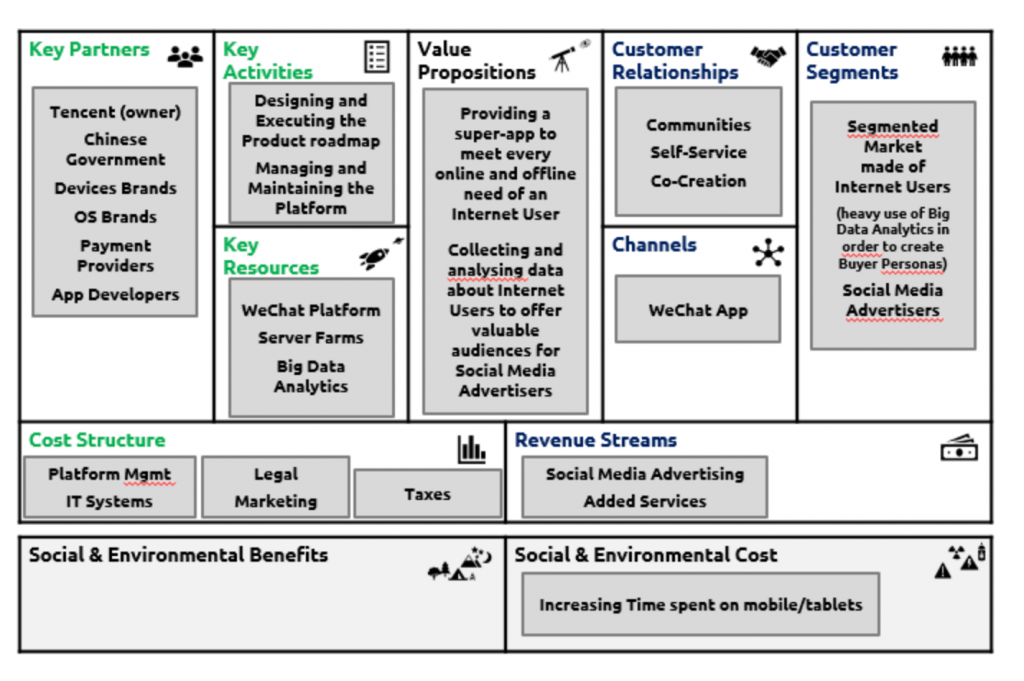
Figure 6. WeChat’s business model canvas. Nicola Zaffonato, All Rights Reserved.
- O2O business
O2O (online to offline) refers to the business model consisting of interactions that begin on the internet and end offline (Zhang et al, 2019). John (2016) pointed out that users’ willingness to sharing online tends to be the predictor of offline sharing. Given the massive number and high stickiness of users on WeChat, the platform tends to play an important role in facilitating the sharing economy and help businesses reach more audiences. Furthermore, mini-program technology also contributes to the WeChat O2O interaction. For instance, the smart retailer Suning utilises the mini-program to provide store-to-door service, which allows customers to make the purchase online and receive the products on the same day.
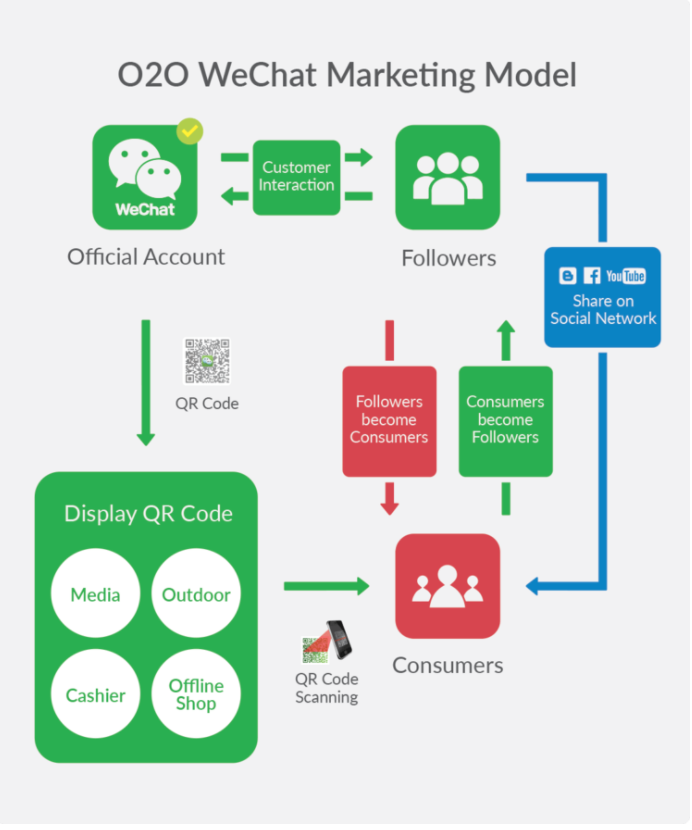
Figure 7. WeChat O2O model. DigiChezf, All Rights Reserved.
4. The concerns raised about WeChat
- Excessive censorship and growing intolerance against LGBTQ groups
On July 6, 2021, WeChat has blocked and deleted dozens of university students’ accounts related to the LGBTQ movement (BBC, 2021). Account operators only received a notice informing them that they had “violated” the platform rules, without being notified of further details (TheHill, 2021). The crackdown of LGBT accounts significantly fueled the fear of the platform’s excessive censorship and aroused criticism of the platform’s intolerance against LGBTQ groups.
- Privacy issues
WeChat has the access to users’ contacts, text messages, and location history (TechStory, 2021), and it has long been accused of the abuse of user data. Whilst the user data allows WeChat to infer users’ preferences through algorithms, so as to more accurately help brands find customers with more potential to buy their products when placing advertisements in Moments, as well as increasing the chance for users to find products that suit their preferences through advertising. Some users do not feel comfortable with sharing their data with the platform and they have raised great concern about their privacy safety as they believe WeChat has overused their personal data.

Figure 8. WeChat Privacy. WeChat recovery, All Rights Reserved.
Last but not least, in the special context of Chinese society, where the government tends to have more regulation and intervention over platforms than in the west (de Kloet, 2019), the concern about privacy can also be easily raised. Chinese government mandates all companies to share their collection of user data with the government (TechStory, 2021), which targets timely intervening in the hate speech and dissemination of bad information online. However, in this way, WeChat has violated its privacy policy for their lack of restriction of who can access users’ data and put users’ data at great risk.
Reference
Babones, S. (2018). WeChat’s red packets are the perfect use case for a Chinese blockchain. https://www.linkedin.com/pulse/wechats-red-packets-perfect-use-case-chinese-salvatore-babones/
BBC News. (2021) China divided as WeChat deletes LGBT accounts from platform. https://www.bbc.com/news/world-asia-china-57759480.
Chan, C. (2021). When One App Rules Them All: The Case of WeChat and Mobile in China. https://a16z.com/2015/08/06/wechat-china-mobile-first/.
Chen, Y., Mao, Z., & Qiu, J. L. (2018). Super-sticky WeChat and Chinese society . Emerald Publishing Limited.
de Kloet, J., Poell, T., Guohua, Z., & Yiu Fai, C. (2019). The platformization of Chinese Society: infrastructure, governance, and practice. Chinese Journal of Communication, 12(3), 249–256. https://doi.org/10.1080/17544750.2019.1644008
John, N. A. (2016). Sharing Economies. In The age of sharing. Polity.
Nawaz, M. Z., Tao, M., Ahmad, H., Haque, M. J., Nawaz, S., & Shafique, M. N. (2020). Youngsters and WMAs (WeChat Moments Advertisement): Do We Need the English Language in WMAs? SAGE Open, 10(2), 215824402092284–. https://doi.org/10.1177/2158244020922840
TheHill. (2021). China’s WeChat deletes accounts on LGBT topics. https://thehill.com/policy/technology/562011-chinas-wechat-deletes-accounts-on-lgbt-topics.
TechStory. (2021). Chinese apps steal user data, what to do? https://techstory.in/chinese-apps-steal-user-data-what-to-do/.
Techcrunch. (2021). Messaging app WeChat is becoming a mobile payment giant in China. https://techcrunch.com/2016/03/17/messaging-app-wechat-is-becoming-a-mobile-payment-giant-in-china/
WeChat Pay. (2021). WeChat payment products. https://pay.weixin.qq.com/index.php/public/wechatpay_en/product_index
Van, J. (2018). The Platform Society as a Contested Concept. In The Platform Society. Oxford University Press. https://doi.org/10.1093/oso/9780190889760.003.0002
Zhang, J., Liu, F., Tang, J., & Li, Y. (2019). The online integrated order picking and delivery considering Pickers’ learning effects for an O2O community supermarket. Transportation Research. Part E, Logistics and Transportation Review, 123, 180–199. https://doi.org/10.1016/j.tre.2019.01.013
